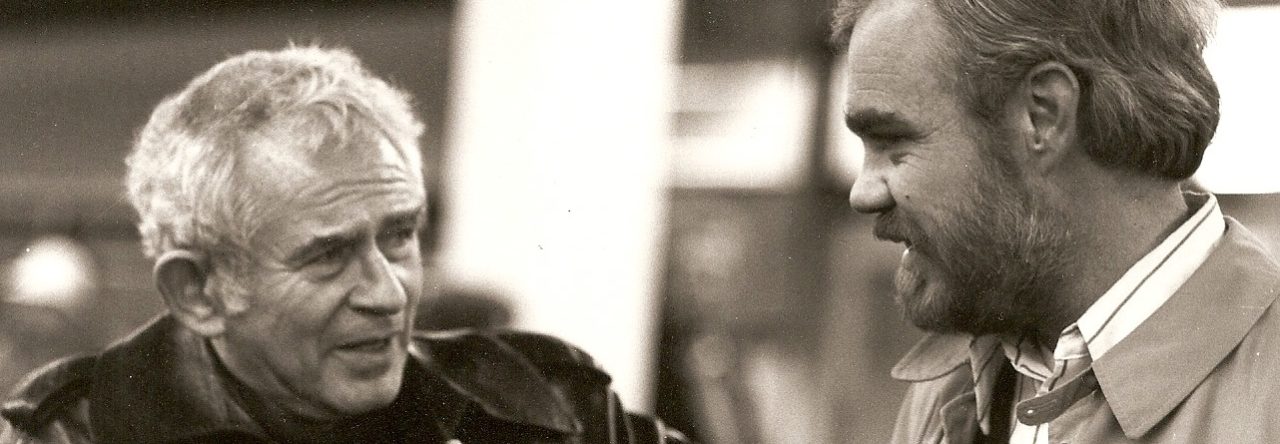Lee Siegel writes: “A new Norman Mailer biography shows that his life may have been his greatest work of art.”
Category: Biography Page 6 of 10
The biographies of most writers go roughly like this: born, type, type, type, acclaim, type, type, type, marry, type, type, type, die.
Mailer is the exception. He never stinted on the typing, being a stranger to brevity – ‘I can’t get someone through a door,’ he once said, ‘without blowing a thousand words.’
But he also found plenty of time for activities that other authors can only imagine, such as sex and violence.
“Be regular and orderly in your life like a bourgeois,” Flaubert wrote, “so that you may be violent and original in your work.” Try telling that to Norman Mailer. He fought in the war and he fought in bars. He had six wives and stabbed one of them. He drank heavily, took drugs, slept with anyone he could and stood for New York mayor. He fell out with everyone who picked up a pen. Amid the mayhem he wrote great journalism, wildly uneven novels, bad poetry and made truly abysmal films. At his best he lived originally, challenging every constricting convention; at his worst he was simply violent.
Mailer is like America. Loud and colorful, diverse, sometimes brilliant, often the victim of his own self regard, believer in an exceptionalism mostly glimpsed in the mirror, and willing to die trying or for the right cause. As he said about his own country: “The thing that distresses me about America is that for all the country’s done, I don’t think it’s done one quarter of what it should. I believe it was destined, by history, if you will, to be the greatest country that ever existed. I don’t think it’s come near it.”
When J. Michael Lennon was a graduate student at the University of Rhode Island in the early 1970s, he did something unusual for someone writing a dissertation about a famous writer.
Instead of researching someone who’d been rotting underground for scores of years, he wrote about a live author — Norman Mailer.
Norman Mailer was 75 in May of 1998 and had just published a 1300-page retrospective anthology of his work, The Time of Our Time. The defining event of the collection is the Cold War, and Mailer could have read from any number of excerpts, fictional and nonfictional, that unfold under its huge shadow, but because the Monica Lewinsky scandal was then being hotly debated, and the impeachment of President Clinton looming, Mailer read first from two recently published pieces about Clinton.
Thanks to J. Michael Lennon, we see the pugnacious pontificator in all his glory and warts.
J. Michael Lennon’s biography is the first that interprets Mailer from within, not as a public spectacle. Unlike his predecessors—Mary V. Dearborn, Peter Manso, Carl Rollyson, and others—Lennon was Mailer’s friend and collaborator; he has read 45,000 of his letters, and talked to an enormous population of friends and enemies, from gangsters to editors. He shepherds a prodigious variety of events into well-organized chapters, sometimes cluttered with irrelevant details like the names and addresses of movie houses where Mailer watched gangster films as a teenager.
The author of the critically-acclaimed new biography of Norman Mailer is J. Michael Lennon ’63, an English major at Stonehill and a contributor to The Cairn, the student literary magazine.
